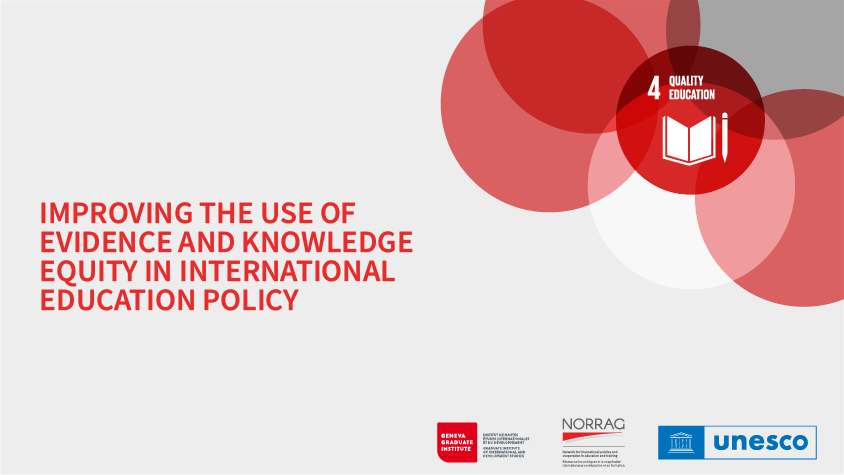Event Highlights: Improving the Use of Evidence and Knowledge Equity in International Education Policy
, –
Auditorium A1, Maison de la paix, Geneva
As part of the Geneva Science Diplomacy Week, organised by the Geneva Science and Diplomacy Anticipator (GESDA), NORRAG collaborated with the Geneva Graduate Institute TechHub to convene an event focused on the evidence of how to improve evidence use in policy.
Despite living in an era of surplus globally produced data and research, there is still limited uptake in policy, planning, and implementation to advance Sustainable Development Goal 4. This session explored how the use of research evidence (URE) can be promoted to serve the achievement of the SDG-4 targets. UNESCO asked NORRAG to conduct a study and produce a report based on a survey, individual and group interviews, and a comparative case study with the public health sector. This session presented and discussed the results of this study, including the roadmap and action plan.
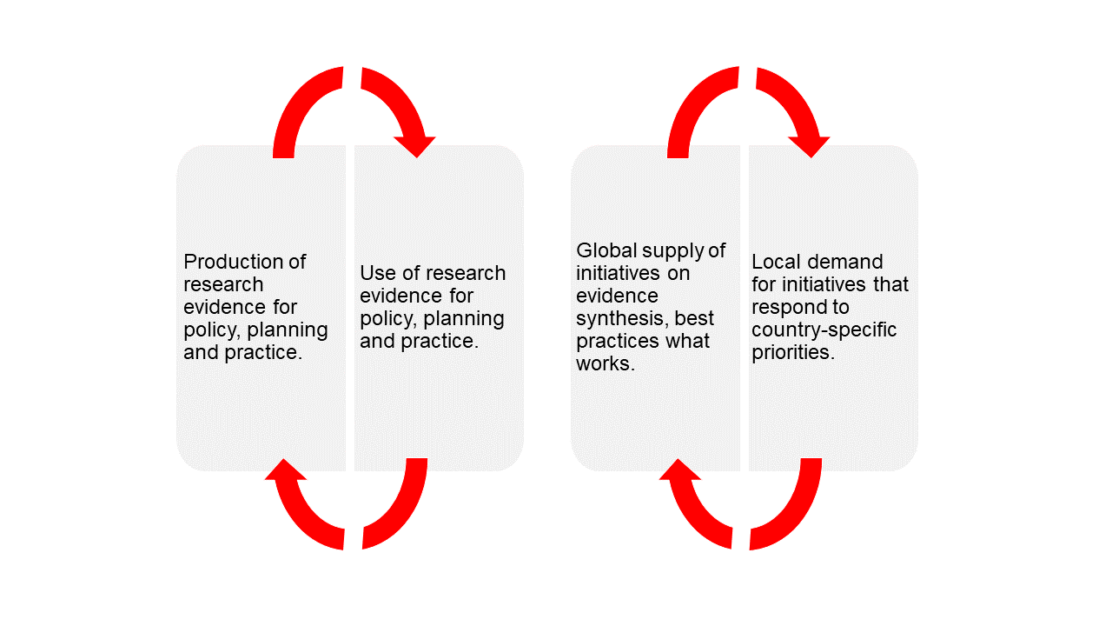
Steiner-Khamsi, G., Faul, M., Baek, C., Numa Hopkins, A. and Iwabuchi, K. (forthcoming). Strategic Review: Improving the Use of Evidence for Education Policy, Planning and Implementation. Paris: UNESCO.
Chanwoong Baek, NORRAG’s Academic Director, opened the session by introducing some contextual information on the mandate NORRAG received from UNESCO to conduct a study on how to improve evidence-based policy formulation and implementation for the revitalised inter-agency Global Education Cooperation Mechanism. This strategic review led by Gita Steiner-Khamsi and Moira Faul, with Chanwoong Baek, Anna Numa Hopkins and Kazuaki Iwabuchi, posed two main questions: How can the use of research evidence (URE) be promoted to serve the SDG 4 targets? What can be learned from the public health sector in terms of how the use of research evidence is coordinated and managed?
Moira Faul, NORRAG’s Executive Director, followed with a presentation of the comparison of evidence production and use in Education and Public Health published since 1999. Some similarities and differences became evident, in particular regarding research production and topic trends over time. While Public Health research shows a coherent and cohesive research agenda, the Education scholarship is both smaller and highly fractionalised. Both are marked by the persistence of a North to South flow of expertise.
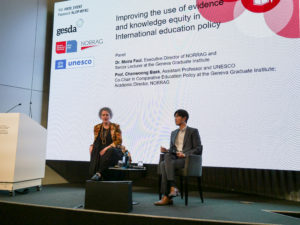
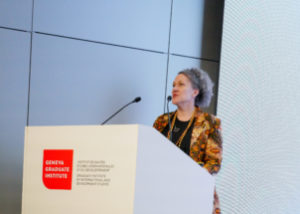
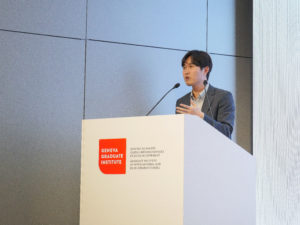
Next, Chanwoong Baek presented a landscape analysis of the use of research evidence for policy, planning and implementation. The analysis was based on the survey responses from 898 policy actors across the world as well as 14 meetings with 33 stakeholders representing IOs, civil society organisations, regional organisations, think tanks and others. One of the striking findings is the surplus of knowledge sources that are loosely connected to each other and unevenly serve different SDG 4 targets. Chanwoong Baek therefore highlighted in the recommendations the need to identify regional intermediaries to facilitate horizontal and vertical knowledge exchange, and the coordination of strategic partnerships.
Finally, Moira Faul summarized the challenges in the form of two main feedback loops: the production versus use of research evidence, and the global supply versus local demand. Based on evidence for how to improve evidence use in policy, she presented solutions to these challenges to improve the use of research and evidence in education policy and practice. It is critical to supplement publishing policy products with building relationships between evidence users and producers alongside designing research and policy systems that encourage the use of evidence in policy.
Moira Faul also presented NORRAG’s global campaign #theSouthAlsoKnows to increase production and dissemination of research by scholars from the Global South.
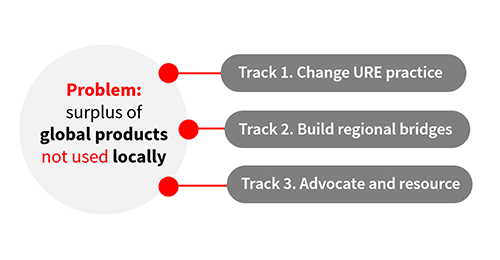
SPEAKERS:
- Chanwoong Baek, Assistant Professor, International Relations/Political Science Department; Academic Director, NORRAG; UNESCO Co-Chair in Comparative Education Policy
- Moira Faul, Executive Director of NORRAG; Senior Lecturer at the Geneva Graduate Institute

